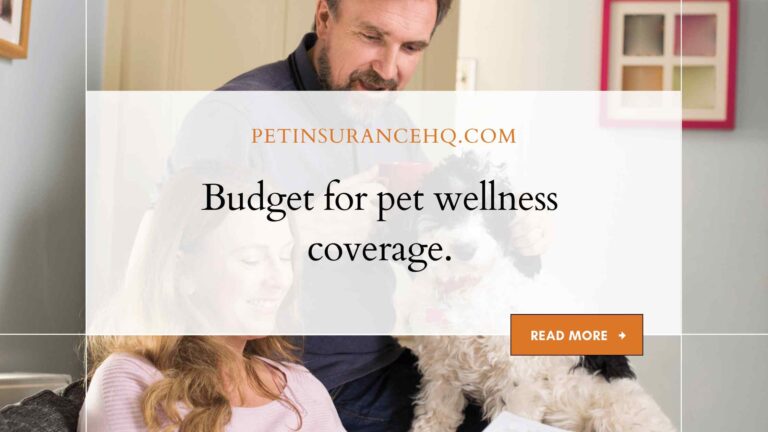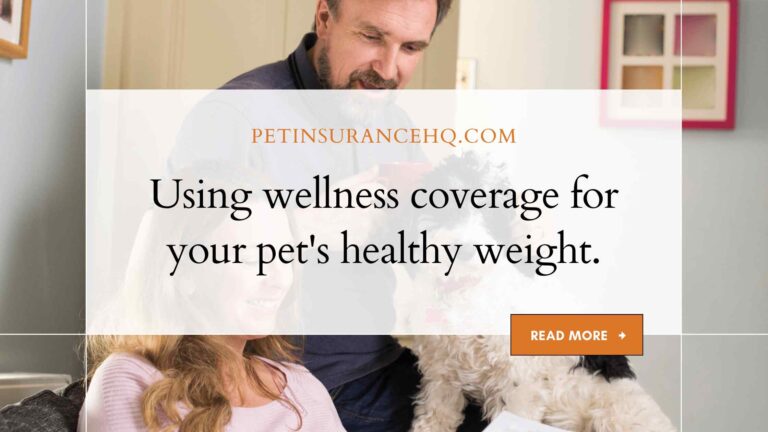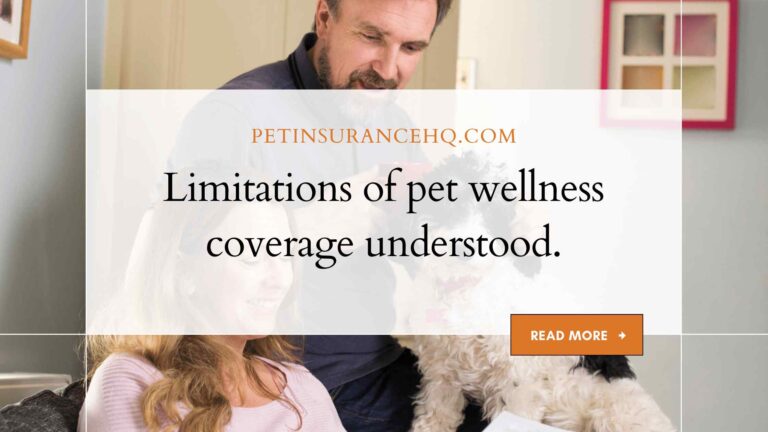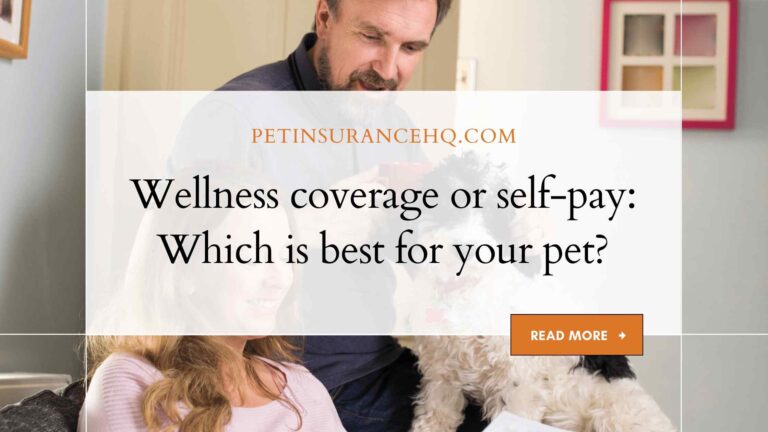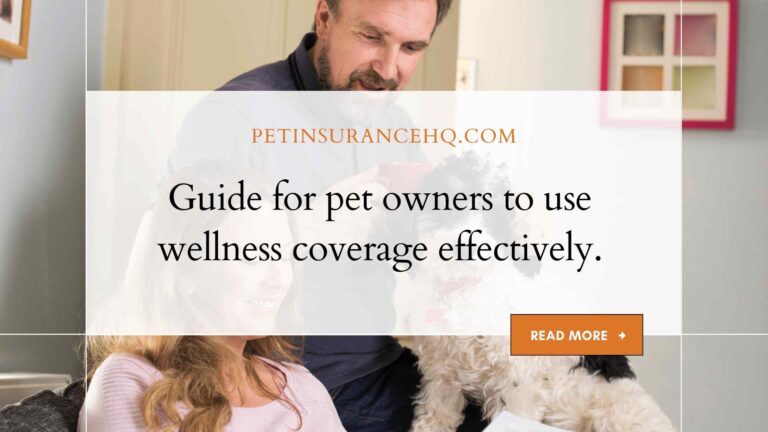The importance of dental care and wellness coverage for pets
When it comes to our furry friends, most of us would do anything to keep them healthy and happy. From regular vet check-ups to nutritious food and plenty of exercise, we go above and beyond to provide them with the best possible care. However, one aspect of pet health that often goes overlooked is dental hygiene. That’s right – just like humans, pets need proper oral care in order to prevent disease and maintain overall wellness.
In this blog post, we’ll delve into the importance of dental care for our four-legged companions – as well as why investing in pet insurance that covers dental treatments could be a game-changer for your furry friend’s health (and your wallet!). So grab your toothbrush (for Fido) and let’s get started!
Introduction: Benefits of Pet Dental Care

When it comes to our pets, we want nothing but the best for them. That’s why it’s important to dental care and wellness coverage for our furry friends. Here are some of the benefits of pet dental care:
- Helps keep your pet healthy – Just like humans, our pets’ teeth and gums are susceptible to bacteria and tartar buildup, which can lead to infection and other health problems. By keeping up with regular dental check-ups and cleanings, we can help prevent these issues before they start.
- Saves money in the long run – Preventative care is always cheaper than treatment, so by investing in pet dental care now, you could save yourself a lot of money (and heartache) down the road.
- Reduces bad breath – We love our pets, but sometimes their bad breath can be a bit much! Regular dental care can help reduce or eliminate bad breath caused by tartar and plaque buildup.
- Increases your pet’s quality (and quantity) of life – Studies have shown that pets with good oral health tend to live longer and healthier lives overall. So by taking care of your pet’s teeth, you’re not only extending their life, you’re also improving its quality.
Common Oral Health Issues in Pets
Pets are susceptible to many of the same oral health problems as humans, including tooth decay, gum disease, and bad breath. To help keep your pet’s teeth and gums healthy, it’s important to brush their teeth regularly and provide them with dental chew toys or treats. Dental insurance for pets can help offset the cost of routine dental care and treatment for more serious issues.
- Tooth Decay: Tooth decay is caused by bacteria, plaque and tartar buildup on teeth. Without frequent brushing, this can lead to cavities and eventual tooth loss.
- Gum Disease: Bacteria in plaque cause inflammation of the gums, leading to bad breath and bleeding when your pet eats or chews. Left untreated, gum disease can lead to bone loss and loose or missing teeth.
- Infection: Oral infections are caused by bacteria that enter the body through a wound or penetrate the gums through an infected tooth root. Infections can spread quickly and even become life-threatening if left untreated.
- Broken Teeth and Fractures: Your pet’s teeth are surprisingly susceptible to fractures due to chewing hard objects or trauma from falls or fights with other animals. Broken teeth may need extraction or extensive dental work depending on how severe the damage is.
- Tartar Buildup: Plaque on your pet’s teeth gradually hardens into tartar, which traps bacteria and causes bad breath as well as irritation of the gums leading to possible infection or further decay.
The Risks of Poor Oral Health and How to Prevent Them
We all know that poor oral health can lead to a host of problems, from cavities to gum disease. But did you know that poor oral health can also affect your pet’s overall health? Just like humans, pets need regular dental care and wellness coverage to prevent problems down the road.
Here are some of the risks of poor oral health in pets:
- Gum disease. Gum disease is the leading cause of tooth loss in pets. It occurs when plaque and tartar build up on the teeth and irritate the gums. If left untreated, gum disease can progress to periodontitis, which leads to bone loss and tooth loss. Pets with gum disease may also be at risk for other infections and diseases, such as heart disease.
- Infections. Bacteria from plaque and tartar can enter the bloodstream and cause infections elsewhere in the body, including the lungs, heart, and kidneys. Pets with dental infections may also experience pain and inflammation.
- Tooth decay. Just like humans, pets can get cavities if their teeth are not properly cared for. Cavities can lead to pain, infection, and eventually tooth loss.
- Bad breath. Plaque and tartar build-up on the teeth can cause bad breath in pets. In addition to being unpleasant for you and your pet, bad breath can be a sign of underlying dental problems.
Fortunately, there are steps you can take to prevent these problems and keep your pet’s teeth and gums healthy. Here are a few tips:
- Brush your pet’s teeth daily. If you can’t brush their teeth, try using specially formulated dental wipes or chew toys that are designed to help reduce plaque and tartar build-up.
- Feed your pet a balanced diet and make sure they get plenty of exercise. Dietary requirements vary from pet to pet, so be sure to consult your veterinarian for advice on the best diet for your individual pet.
- Schedule regular check-ups with your veterinarian, which should include an oral health assessment. Your vet may also recommend professional cleaning and polishing once or twice a year to remove plaque and tartar buildup.
Taking care of your pet’s oral health is just as important as taking care of their overall physical health. With proper preventative care, you can ensure that your furry friend has a long and happy life with healthy teeth and gums!
Tips for Keeping Your Pet’s Teeth and Gums Healthy
Be sure to brush your pet’s teeth at least once a week, and if possible, daily. Use a pet toothbrush and toothpaste, never human products.
Offer your pet dental treats and toys to help keep their teeth clean and their gums healthy.
Take your pet to the vet for regular checkups and teeth cleanings. Many vets offer this service, and it’s important for catching any problems early.
Look into getting dental insurance for your pet. This can help offset the cost of regular checkups and teeth cleanings, as well as any necessary treatments.
Different Types of Pet Wellness Coverage Plans
When it comes to pet health insurance, there are a variety of different coverage plans available. Some pet insurance policies will cover routine and preventive care, while others may only offer coverage for accidents and illnesses.
Here are some of the most common types of pet wellness coverage plans:
- Preventive Care Plans: Preventive care plans typically cover routine vaccinations, wellness exams, and routine testing. These types of plans help to keep your pet healthy and can catch any problems early on.
- Accident and Illness Plans: These types of plans cover unexpected accidents and illnesses that your pet may experience. This type of coverage can help to ease the financial burden if your pet becomes sick or injured.
- Dental Coverage Plans: Dental coverage plans help to cover the cost of preventive dental care as well as necessary dental treatments for accidents or illnesses. Having dental coverage for your pet can help to keep their teeth healthy and avoid costly dental bills down the road.
Benefits of a Wellness Plan For Pets
A wellness plan for pets offers many benefits that can help keep your pet healthy and improve their quality of life. wellness plans typically cover preventive care, including vaccinations, routine blood and urine tests, and physical examinations. Some plans also offer discounts on other services such as boarding, grooming, and training.
Wellness plans can help you catch health problems early, when they are most easily treated. This can save you money in the long run, as well as prevent your pet from suffering from unnecessary pain and discomfort. Early detection and treatment of health problems can also help your pet live a longer, healthier life.
Wellness plans are usually very affordable, especially when compared to the cost of treating serious health problems down the road. Many plans allow you to pay monthly or yearly premiums that fit within your budget. And because wellness plans often cover preventive care, you can avoid more expensive vet bills later on.
There are many different types of wellness plans available, so you can find one that meets the needs of your particular pet. Be sure to do some research to find a plan that covers the services you feel are most important for your pet’s health and wellbeing.
Conclusion
Maintaining the dental health of your pet is essential for its overall wellbeing. With rising veterinary costs, pet insurance and wellness coverage are great financial safety nets to ensure that even in times of monetary hardship, you will be able to pay for necessary dental care treatments that keep your fur baby healthy. Besides providing access to professional dental care, such plans also cover other important services like vaccinations and parasite control which can go a long way towards helping minimize the risk of issues later on down the line.



